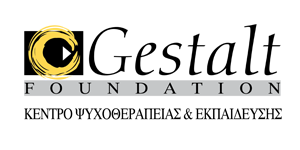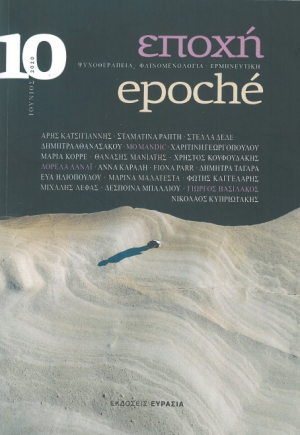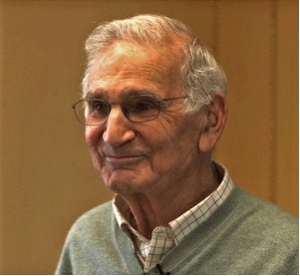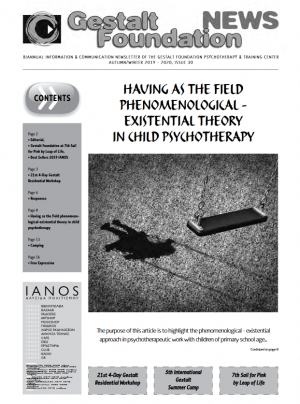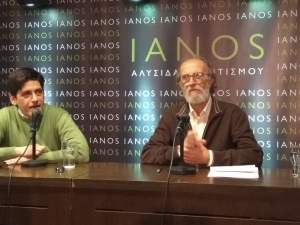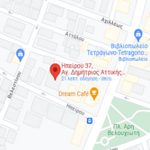Athina
ANNOUNCEMENT
Gestalt Foundation with a sense of social responsibility and in the context of the new emergency measures to face the pandemic of COVID-19, would like to inform you that it will remain closed until further notice.
For any further information & clarification you may need, you can call at ++30 210 7254 010 (for Athens), Monday - Friday and hours 10:00-18:00 and at ++30 2310 283 588 (for Thessaloniki & Larissa) and hours 10:00-17:00.
Our offices will be closed for the Christmas Holidays from Thursday 24/12/2020 until Friday 01/01/2021.
Happy Christmas!
Publication of an article entitled: "Mother Nature is Suffering" by D. Balliou, in issue 10 of the magazine "EPOCHI", which has just been published.
The article entitled: Mother Nature is Suffering - The Eco-Phenomenological Approach to Gestalt Psychotherapy was published in issue 10 of the magazine EPOCHI - Psychotherapy, Phenomenology, Interpretation.
In her article, Ms. Balliou starts from the premise that each region of the earth is subject to different environmental pressures, some to a greater extent than others, but all regions influence each other in the way environmental issues are handled because environmental issues have no national borders. As such, they cannot be separated from social and economic inequalities. It is therefore obvious that the solution can only be complex.
Ms. Balliou explores, through the lens of the Gestalt psychotherapeutic approach, the following questions:
1. What has gone wrong in our relationship with the environment?
2. Why are truths so difficult to uncover?
3. Is it really possible that everything can change "as if by magic" as many believe?
4. Is there any hope that our attitude towards nature will be redefined?
Gestalt therapy, as an eco-phenomenological approach, is supported by principles and concepts such as "Organism / Environment", "Contact", "Awareness", "Polarization", "Existential Dialogue" and "Social Responsibility" and these concepts can help raise awareness in therapists, patients, organizations and society in relation to the environmental challenges that exist in this century. The article concludes that by appreciating the reciprocal nature of interrelated phenomena in the field of "organism / environment", embracing the experiential complexity of our connection with the world and sustaining existential uncertainty in a “creative void”, we are contributing to the emergence of a new mentality in our relationship with the environment.
We say farewell and pay tribute to Philip Lichtenberg, a great teacher.
Dearest Philip, our wonderful teacher,
The time has come … that bittersweet hour when the heart tightens and triggers tears full of love.
All we can do is feel shaken, moved, and cry… letting, like flashbacks, the experiences of our contact with you emerge.
You take form within us, a warm presence with a penetrating gaze into the "here and now" of the other that fills the absences of life … a slender figure exuding a calm strength that embraces vulnerability by tenderly wiping away its tears.
You are gone, but you have left us a precious legacy.
A legacy of knowledge about social and personal responsibility, transcendence, exclusively aggressive behavior, social injustice, equality, oppression, human rights, faith versus safety, and so much more!
But mostly you have left a legacy of a way of being and existing in the world, both as a therapist with ethics, commitment, care, boundaries and authenticity, and as a sensitive, true, loyal teacher, citizen, friend, companion, father and grandfather ... it is a legacy that defines us and honors us.
So we thank you, dearest Philip, from the bottom of our hearts, and we will be forever grateful to you!
Philip Lichtenberg, Professor Emeritus at Bryn Mawr College and Co-Founder and Faculty Member of the Gestalt Institute of Philadelphia, Passed away peacefully and naturally on May 22, 2020 at Kendal at Longwood in Kenneth Square, PA.
Dr. Lichtenberg was born in Schenectady, N.Y. on October 1, 1926. He grew up in Fort Wayne, Indiana excelling in basketball at South Side High School. After attending Rose Polytechnic Institute and Indiana University while in the U.S. Army Air Corps, he served in post WW 2 Germany as a sergeant in the cryptography section. He completed his BS, MA and PhD degrees at Western Reserve University (now CWRU) in Cleveland. Dr. Lichtenberg taught at Bryn Mawr College Graduate School of Social Work from 1961 to 1996 and at GTIP from its founding from 1984 to 2011.
CREATIVE ADJUSTMENT, of crucial importance for the mobilization of individuals in crisis.
In the last three months we have experienced in Greece, Europe and the whole world some truly unprecedented circumstances that have overturned our daily lives and immobilized our activities so much so that many of our established ways of behaving as citizens, as professionals but also as social beings are not judged to be appropriate and are being prohibited.
Such unexpected and unpredictable circumstances that at first disorganize us, entrapping us in a sense weakness and inaction, require our creative adjustment, individually, professionally and socially.
So we, at the Gestalt Foundation, after the initial sense of bewilderment, have adjusted creatively, reacting and acting in time, with excellent organization, cooperation, response, willingness and even self-sacrifice on the part of the founding trainers! With the excellent guidance and undivided support and dedication of our technical support manager, we managed to complete our training program and some of the other educational activities of the academic year 2019-2020 through the online platform ZOOM US. As a result, our students, who have entrusted the Gestalt Foundation with their preparation in becoming gestalt psychotherapists and counselors, did not lose a single day of training.
Of course, the impetus for the success of this endeavor was our team of trainers, who responded very positively and selflessly, as well as the trainees, with only a few exceptions who in the end, after carrying out various activities online, also gave (mostly) positive feedback!
But all this is about the past! Now we are looking forward to the future with courage, confidence and optimism and we are preparing and organizing all our programs for the new academic year 2020-2021!
COUNSELING SUPPORT SESSIONS in a time of crisis “Contact ...at a distance"
Corona Virus Pandemic! A climate of disorder, fear, panic, entrapment and isolation!
Such rapid, unexpected and forced changes in our lifestyle often present significant "difficulties" and "restrictions" in our daily lives, but at the same time, these same difficult situations can offer a number of interesting "possibilities" so that the crisis can become an opportunity to coexist in new ways, caring for each other. However, there are situations that make it difficult for some people to adapt to the rhythms imposed by the new temporary status quo, and they need support in order to cope with these sudden limitations!
In the context of this "pandemic crisis", the Gestalt Foundation and its trainees felt that this was the time to offer their help to fellow human beings who really need support.
So through the link https://www.facebook.com/group.process.team a new telephone and online practice was established, offering voluntary Gestalt counseling and psychological support sessions, via Skype, Messenger, Viber, WhatsApp and/or by phone to anyone who truly needs it!
The sessions had and continue to have a specific duration, in line with the principles and code of ethics of Gestalt psychotherapists and mental health counselors.
In this specific ongoing initiative, 150 people have responded to 30 trained Gestalt therapists who, in turn, are supported by four supervisory teams!
Autumn - Winter 2020, issue 30
USEFUL INFORMATION
Dates of Conduct: Wednesday 17 June 2020 11:30 to Sunday 21 June 2020 18:30
Venue: Candia House, Candia Beach, 21100 Nafplion
Language: English
Participation fee:
For registration and payment until 15/04/2020 € 1,700 / person
The price includes:
- Workshops attendance, information material as well as a certificate of attendance.
- 4 nights with breakfast, 10 coffee breaks and 5 light lunches.
- Accommodation in double or triple rooms
For more information and participation, contact the centers:
Athens: Monday - Friday 10:00 - 18:00
G. SISINI 39, 115 28 Athens (Hilton) Tel: +30 210-7254010
Email: This email address is being protected from spambots. You need JavaScript enabled to view it.
Thessaloniki: Monday - Thursday 09:00 - 17:00, Friday 10:00 - 18:00
Mitropoleos 109, 546 22 Thessaloniki Tel. +30 2310-283588
Email: This email address is being protected from spambots. You need JavaScript enabled to view it.
DETAILED PROGRAM
WEDNESDAY 17/6/2020
09:30 -11:30 Arrival - Registrations - Welcome Coffee
11:30 -13:00 Theoretical Presentation / Plenary Session
Topic: «The metamorphosis of pain. A phenomenological-gestalt perspective on psychopathology»
Co-ordinator: Gianni Francesetti
13:00 -13:30 Chewing time / Small Groups
13:30 -15:00 Break / Light lunch
15:00 -17:00 Experiential Group Α
Co-ordinator: Gianni Francesetti
Experiential Group Β
Co-ordinator: Armin Baier
17:00 -17:30 Coffee-break
17:30 -19:00 Group of Supervision Α
Co-ordinator: Gianni Francesetti
Group of Supervision Β
Co-ordinator: Armin Baier
THURSDAY 18/6/2020
08:00 -09:00 Breakfast
09:30 -11:00 Theoretical Presentation / Plenary Session
Topic: “What My Clients Taught Me About Relational Gestalt therapy”
Co-ordinator: Armin Baier
11:00 -11:30 Chewing time / Small Groups
11:30 -12:00 Coffee-break
12:00 -13:30 Experiential Group Α
Co-ordinator: Gianni Francesetti
Experiential Group Β
Co-ordinator: Armin Baier
13:30 -15:00 Break / Light lunch
15:00 -16:30 Group of Supervision Α
Co-ordinator: Gianni Francesetti
Group of Supervision Β
Co-ordinator: Armin Baier
16:30 -17:00 Coffee-break
17:00 -18:30 Group of Supervision Α / Continuation and closing
Co-ordinator: Gianni Francesetti
Group of Supervision Β / Continuation and closing
Co-ordinator: Armin Baier
FRIDAY 19/6/2020
08:00 -09:00 Breakfast
09:30 -11:00 Theoretical Presentation / Plenary Session
Topic: «To share or not to share? The process of change in therapy from a field theory perspective»
Co-ordinator: Gianni Francesetti
11:00 -11:30 Chewing time / Small Groups
11:30 -12:00 Coffee-break
12:00 -13:30 Experiential Group Α
Co-ordinator: Gianni Francesetti
Experiential Group Β
Co-ordinator: Armin Baier
13:30 -15:00 Break / Light lunch
15:00 -16:30 Group of Supervision Α
Co-ordinator: Gianni Francesetti
Group of Supervision Β
Co-ordinator: Armin Baier
16:30 -17:00 Coffee-break
17:00 -18:30 Group of Supervision Α / Continuation and closing
Co-ordinator: Gianni Francesetti
Group of Supervision Β / Continuation and closing
Co-ordinator: Armin Baier
SATURDAY 20/6/2020
08:00 -09:00 Breakfast
09:30 -11:00 Theoretical Presentation / Plenary Session
Topic:”Sexual Differences: Shame and Recovery”
Co-ordinator: Armin Baier
11:00 -11:30 Chewing time / Small Groups
11:30 -12:00 Coffee-break
12:00 -13:30 Experiential Group Α
Co-ordinator: Gianni Francesetti
Experiential Group Β
Co-ordinator: Armin Baier
13:30 -15:00 Break / Light lunch
15:00 -16:30 Group of Supervision Α
Co-ordinator: Gianni Francesetti
Group of Supervision Β
Co-ordinator: Armin Baier
16:30 -17:00 Coffee-break
17:00 -18:30 Group of Supervision Α / Continuation and closing
Co-ordinator: Gianni Francesetti
Group of Supervision Β / Continuation and closing
Co-ordinator: Armin Baier
SUNDAY 21/6/2020
08:00 -09:00 Breakfast
09:30 -11:00 Meaning making of theory/ Plenary Session
11:00 -11:30 Chewing time / Small Groups
11:30 -12:00 Coffee-break
12:00 -13:30 Experiential Group Α
Co-ordinator: Gianni Francesetti
Experiential Group Β
Co-ordinator: Armin Baier
13:30 -15:00 Break / Light lunch
15:00 -16:30 Group of Supervision Α
Co-ordinator: Gianni Francesetti
Group of Supervision Β
Co-ordinator: Armin Baier
16:30 -17:00 Coffee-break
17:00 -18:00 Group of Supervision Α / Continuation and closing
Co-ordinator: Gianni Francesetti
Group of Supervision Β / Continuation and closing
Co-ordinator: Armin Baier
18:00 -18:30 Plenary Session/ Closing of the 5day program
TOPICS OF THEORETICAL PRESENTATIONS
The themes of the theoretical presentations that Gianni Francesetti will develop are the following:
- “The metamorphosis of pain. A phenomenological-gestalt perspective on psychopathology”
What is psychopathology? What is the relationship between psychopathology and pain? And with diagnosis? What are the characteristics of a phenomenological-gestalt psychopathology? What is psychopathological suffering? How does the therapist perceive this suffering in the session? And what happens to it in therapy? In this lecture, I will try to address these questions by using a perspective based on Gestalt therapy theory and phenomenological tradition in psychopathology. Through this journey, I suggest a possible understanding of the transformations of pain in different forms of suffering and absences, i.e. in psychopathology. And, vice versa, we can conceptualize therapy as a pathway from psychopathological forms towards their transformations in pain and in presence. This exploration offers support in understanding human clinical suffering and its transformations in therapy.
Learning goals:
- To understand the relationship between traumatic experiences and psychopathology
- To understand the relationship between psychopathology and therapeutic processes
- «To share or not to share? The process of change in therapy from a field theory perspective»
The impact of a field perspective in psychopathology, diagnosis and psychotherapy can be revolutionary in its consequences, depending on how the therapist approaches the session and conducts therapy. In particular, I will focus on how field theory can shed new light on the processes of change in psychotherapy and on the paradoxical theory of change.
The field perspective does not offer a technique that can be reproduced as behaviour, but proposes an approach to therapy to help steer the therapeutic act as it emerges in the specific situation. So the field perspective is not a theory of a technique, but a theory of phronesis. The phronetic process is a support for therapists in order to orient themselves in the very crucial moment of the art of therapy: the moment when they feel a resonance and they have to choose if, when and how to share it with the client.
Learning goals:
- To know the theory of change in different paradigms (personal, dialogical, field theory)
- To understand the risks and possibilities of sharing the therapist’s feelings in therapy
- To know what makes the difference in the process of sharing in order to support the process of change in therapy
Gianni Francesetti: Psychiatrist, Gestalt therapist, Adjunt Professor of Phenomenological and Existential Approach, Dep. of Psychology, University of Torino (Italy), international trainer and supervisor, he has published widely on psychotherapy and psychopathology, exploring original approaches to understanding clinical suffering from a phenomenological and Gestalt therapy viewpoint and proposing new models for framing particular clinical disorders (including experiences of panic, depression, psychosis, and obsessive-compulsive disorder). He is President of Poiesis. Gestalt Therapy Centre of Torino and of the IPsiG - International Institute for Gestalt Therapy and Psychopathology. He is Past President of the EAGT (European Association for Gestalt Therapy), of the SIPG (Italian Society for Gestalt therapy), of the FIAP (Italian Federation of Psychotherapy Associations), member of the New York Institute for Gestalt Therapy, the Association for the Advancement of Gestalt Therapy (AAGT), the European Association of Psychotherapy (EAP), and the Society for Psychotherapy Research (SPR).
The themes of the theoretical presentations that Armin Baier will develop are the following:
- “What My Clients Taught Me About Relational Gestalt Therapy”
The world of Gestalt Therapy has undergone significant shifts in focus and approach. The theory and practice of Gestalt Therapy are often now discussed as having a “classic” period followed by an expansion to a deeper development of the relational practice. This very personal lecture will explore one therapist’s experience of this sea change over the course of 40 years, with specific case examples. In particular, one 10-year therapeutic encounter with a patient who reshaped this therapist’s thinking about the nature of the relational ground of therapy will be described and examined. Reference will be made especially to Martin Buber’s instruction to the psychotherapist in his essay “Healing Through Meeting,” as well as the theoretical writings of Yontef, Jacobs, Francesetti and others.
Learning Goals
- Participants are able to identify a personal example of the emergence of the therapist’s presence as an essential component of a relational Gestalt Therapy model.
- Participants are able to define the therapist’s presence in terms of Martin Buber’s experiential description of the shift from an expert stance to one of empathic immediacy.
- Participants are able to identify the role of the therapist’s “otherness,” in Lynne Jacobs terms, as a central aspect of promoting self-development in the patient.
- “Sexual Differences: Shame and Recovery”
In the past 50 years, our world has gradually and with much struggle begun to make room for sexual differences in human beings. Sexual identity, sexual orientation and varieties of conventional and unconventional sexual expression are now a vibrant part of our social and cultural discourses. Our sexual differences include both interpersonal expressions and individual impulses and fantasies. While social and political accommodation of sexual differences is becoming more common in some places, the experiences of individuals can often be characterized by opposition, conflict and rejection.
Among the most persistent effects of this experience is an ongoing legacy of shame. The relational approach to contemporary Gestalt Therapy has placed special emphasis on shame, notably in the writings of Gestalt therapists Gary Yontef, Gordon Wheeler, Jean-Marie Robine and Lynne Jacobs. This presentation will identify the causes and consequences of shame experienced by individuals with sexual differences, how that shame experience shows up in the therapeutic setting in gross and subtle ways, and the possibilities for support and healing through an existential and relational Gestalt therapeutic treatment. Several case examples will illustrate the complexities of working with sexual differences to enable a transition beyond shame.
Learning Goals
- Participants are able to identify the range of behaviors that comprise sexual behavior differences in human beings.
- Participants are able to describe the history of growing awareness of sexual behavior differences by mental health providers and how this has impacted social and cultural perspectives.
- Participants are able to describe how shame develops and plays a role in the experience of persons with sexually different behaviors.
- Participants are able to identify 4 psychotherapeutic interventions to address shame in the context of sexual differences and to facilitate healing and growth.
Armin Baier, LCSW, JD, is a member of the core faculty of the Pacific Gestalt Institute and he has a private psychotherapy practice in Los Angeles specializing in relational gestalt therapy, trauma, addiction. He provides clinical consultation at the Venice Family Clinic, teaches at the Columbia University School of Social Work MSW program online campus, and serves on the board of directors of the Gestalt Therapy Institute of Los Angeles. As a former Clinical Director of the Parallax Center addiction treatment program in New York for over 20 years, Armin’s clinical experience, teaching and published writings include research, method and policy in the field of addiction treatment.
“DEATH”: From the series of lectures ‘Philosophy meets Psychology’, by the Gestalt Foundation, at the IANOS Culture Chain.
On Thursday, 13/02/2020, at the IANOS Culture Chain in Athens, the fourth lecture in the series ‘Philosophy meets Psychology’ was held. The theme was “Death”. Presenting the philosophical side of the subject was the speaker Stasinos Stavrianeas, Assistant Professor of Philosophy at the University of Patras, and on the side of Psychology were the speaker George Diplas, P.g.D. in PCA Counseling, Gestalt trainer & supervisor, psychotherapist. Death is one of the most beloved and debated concepts in both philosophy and psychology. But it is difficult to understand both in terms of its definition and its perception of it. It was next, in the ensuing discussion, that the public would flood the speakers with various questions and postings and lead to an extremely interesting exchange of views.


